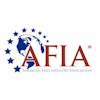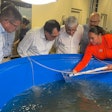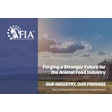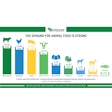
The U.S. Grains Council (USGC) recently participated in the 2025 International Conference of the Latin American (LTA) Bioeconomy Network in Costa Rica, reinforcing support for ethanol adoption and emerging E10 blending policies in Central America. The engagement aims to foster trust in U.S. ethanol as countries in the region progress toward biofuel integration.
Alicia Koch, USGC director of global ethanol export development, attended the conference with USGC Regional Ethanol Consultant Federico Salcedo. “Ethanol blending policies in Central America are showing promise, with countries like Costa Rica, Guatemala and Panama planning to blend gasoline with 10 percent ethanol (E10) by 2026,” Koch said. “The Council’s engagement in the region is supporting biofuel adoption while establishing relationships and building trust in U.S. ethanol as a readily available option for importers.”
Hosted by the Inter-American Institute for Cooperation on Agriculture (IICA), the conference served as a platform for dialogue on the future of the bioeconomy, including biofuels and ethanol. Key discussion points among LTA Bioeconomy Network members and international attendees from the U.S., Africa, Asia, and Europe included:
- Market demand, financing, and policy incentives for bioeconomy development.
- Challenges and opportunities for regional partnerships.
- Bioeconomy policy updates from various countries and examples of public-private models.
- Pathways for youth involvement in the bioeconomy.
- Metrics for assessing successes and considerations for biofuel policy based on localized economies.
The conference also welcomed representatives from global platforms such as the G20, IACGB, the Food and Agriculture Organization (FAO), and the Organization for Economic Cooperation and Development (OECD).
In addition to participating in the conference, the USGC team met with key Costa Rican stakeholders to discuss the implementation of the country’s ethanol-gasoline blending program, which is planned for 2026. These stakeholders included officials from:
- The Ministry of Environment and Energy (MINAE)
- The Costa Rican Oil Refinery (RECOPE)
- The Public Services Regulatory Authority (ARESEP)
- The U.S. Department of Agriculture's Foreign Agricultural Service (FAS)
- The Association of Vehicle Importers (AIVEMA)
These meetings focused on the progress made in Costa Rica's blending program and identifying obstacles that still need to be addressed before its launch.

















